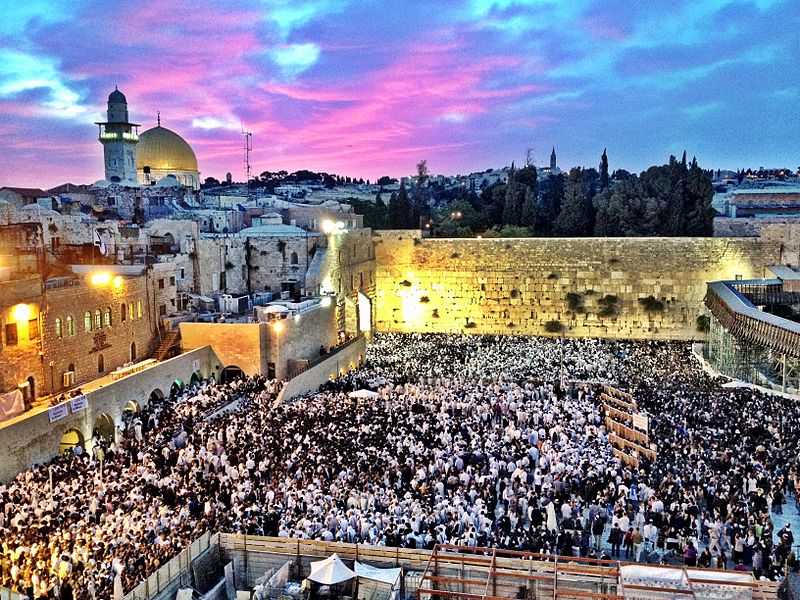There
is a palpable sense of achdut in Israel, that has not been felt in
many decades. While one might be tempted to suggest it is tied into
the war, previous wars have not led to this kind of unity. What is
the basis of our unity?
בָּנִים אַתֶּם לה' אֱלֹהֵיכֶם לֹא תִתְגֹּדְדוּ וְלֹא תָשִׂימוּ קָרְחָה בֵּין עֵינֵיכֶם לָמֵת
You
are children of HaShem. Do not make any cuts on yourself, and do make
a bald spot between your eyes, because of the dead. (Loose
translation of Devarim 14:1).
Let's
examine this passuk, both in terms of drush and peshat.
On
the words “
לֹא
תִתְגֹּדְדוּ",
Chazal
teach "לא
תעשו אגודות אגודות "
Do not split yourselves into separate groups, or cliques. (One place
where this comes into play is when people within the same shul or
community, have different practices with putting on tefillin on Chol
HaMoed). Rashi explains that the reason for this prohibition is that
if we split up our practice of Torah, it will appear, God forbid, as
if there are two Torahs. Rambam, on the other hand suggests that the
reason for the prohibition is to prevent fighting. What this
understanding of the words לֹא
תִתְגֹּדְדוּ seems
to lack is a connection to the beginning of the pasuk בָּנִים
אַתֶּם לה'
אֱלֹהֵיכֶם.
We will see that there is, in fact, a connection.
On
the level of peshat, several explanations are given for the
connection between the two parts of the passuk.
The
Ibn Ezra explains that because we are children of HaShem, we should
recognize that even when tragedy occurs, it from the same loving
father who always take care of us. Even though death is difficult to
accept, particularly when a person was murdered, our reaction should
be tempered with the realization that our loving father rules the
world, and that nothing happens unless He allows it.
The
Ramban connects it to the concept of Olam HaBa. Do not respond to
death as if it is the end, Recognize that, as children of God, there
is another world, in which true reward will be given to the person
who died.
I
would suggest that the midrash, and the two explanations of it, do,
in fact, tie into the beginning of the passuk.
The
fact that we were given one Torah is an indication that we are all
connected. Hashem asks us to live by the same rules. It is only as a
nation can we observe all 613 mitzvos. As children of HaShem, we
should be careful not to let supercial differences of appearance or
approach of worship, lead to a sense that we do not share one Torah.
Similarly,
a father is always pained where there is fighting and division among
his children. He wants them to live together and realize that they
are interconnected. We need to recognize that intra-religious
fighting is an indication that we do not sufficiently see our fellow
Jews as brothers and sisters.
The
war started with the unbearable tragedy of the kidnapping and murder
of three precious yeshiva boys. Although, we dare not claim to
understand why, we follow in the lead of the Fraenkel, Yifrach and
Shaar families and accept what happened as a decree from Above. We
can derive at least a small amount of comfort knowing that these
three precious boys, and those who have died during this war, are
being treated as heroes in the world of Truth. Amongst ourselves, our
reaction can only be that of unity, as we recognize that we are all
truly children of HaShem, and that KOL Yisrael yeish lahem cheilek
l'Olam Haba. After the end of the war, which should come soon, please
God, let us remember this lesson and show that we do not need tragedy
to bring us together as one.











